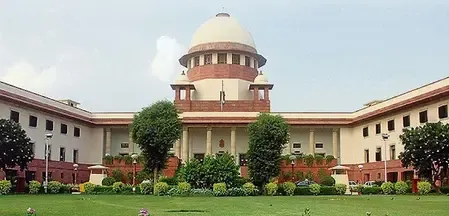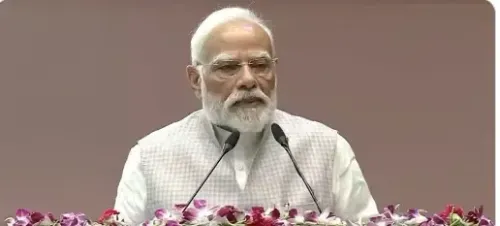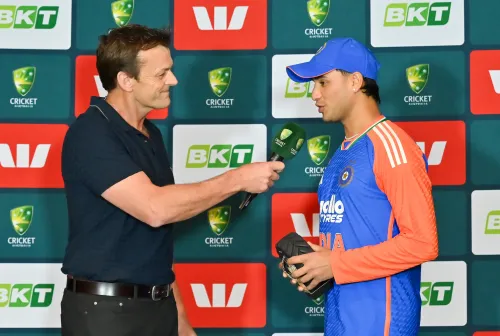Did the SC Uphold K'taka HC Ruling Against ED Notice to CM Siddaramaiah's Wife?

Synopsis
Key Takeaways
- Supreme Court dismissed ED's SLP
- Karnataka HC's ruling upheld
- Political implications for Siddaramaiah
- Judiciary's role in political matters emphasized
- Concerns raised over ED's conduct
Bengaluru, July 21 (NationPress) The Supreme Court on Monday rejected the Special Leave Petition (SLP) submitted by the Directorate of Enforcement, which contested the Karnataka High Court's ruling that annulled the ED notice directed at Karnataka Chief Minister Siddaramaiah's wife, Parvathi B.M., and Urban Development Minister Byrathi Suresh regarding the Mysuru Urban Development Authority (MUDA) case.
Chief Minister Siddaramaiah is identified as the primary accused in this matter.
While reviewing the appeal, Chief Justice of India B.R. Gavai expressed his discontent, citing his prior experiences with similar issues in Maharashtra. "Please do not compel us to express our views harshly. Political contests should remain among the electorate. Why allow yourself to be manipulated in this manner?" the bench inquired.
They continued, "We see no fault in the logic of the single judge. Given the unique facts and circumstances surrounding this case, we dismiss the petition. Our gratitude goes to the ASG for helping us avoid making severe comments."
ASG S.V. Raju indicated to the court that he would retract the petition, requesting that this not set a precedent.
In response to these developments, the Chief Minister's Office remarked that justice has been served, effectively ending the ED's intrusion in the MUDA matter.
The ED had previously issued notices to Parvathi B.M. and Minister Byrathi Suresh regarding alleged money laundering in the context of the MUDA scandal.
The Karnataka High Court had previously invalidated the Enforcement Directorate's summons to Parvathi B.M. and Byrathi Suresh on March 7 in relation to the MUDA site allocation case.
Justice M. Nagaprasanna delivered the decision on petitions filed by both Parvathi and Suresh challenging the ED's actions. The court had suspended the summons as of January 27.
Parvathi's legal representatives contended that the ED was conducting a parallel investigation even though the case is already under scrutiny by the Lokayukta police and a Special Investigation Team (SIT).
On the other hand, Additional Solicitor General of India, Arvind Kamath, representing the ED, argued that Parvathi was the second accused in the initial offence and had benefited from the proceeds of crime.
Minister Suresh's attorney, Senior Advocate C.V. Nagesh, asserted that his client was not implicated in the case and should not have been summoned.
In the MUDA site allocation case, it is alleged that 14 compensatory sites were granted to Siddaramaiah's wife in an upscale area of Vijayanagar Layout, stages 3 and 4 in Mysuru, which holds greater property value compared to her land that was "acquired" by MUDA.
MUDA allocated plots to Parvathi under a 50:50 ratio scheme in exchange for 3.16 acres of her land, where it developed a residential layout. Under this contentious scheme, MUDA granted 50 percent of developed land to land losers instead of undeveloped land taken from them for creating residential layouts.
It is alleged that CM Siddaramaiah misused his position first as an Opposition leader, then as Deputy Chief Minister, and later as Chief Minister to secure the allocation of these 14 sites.









